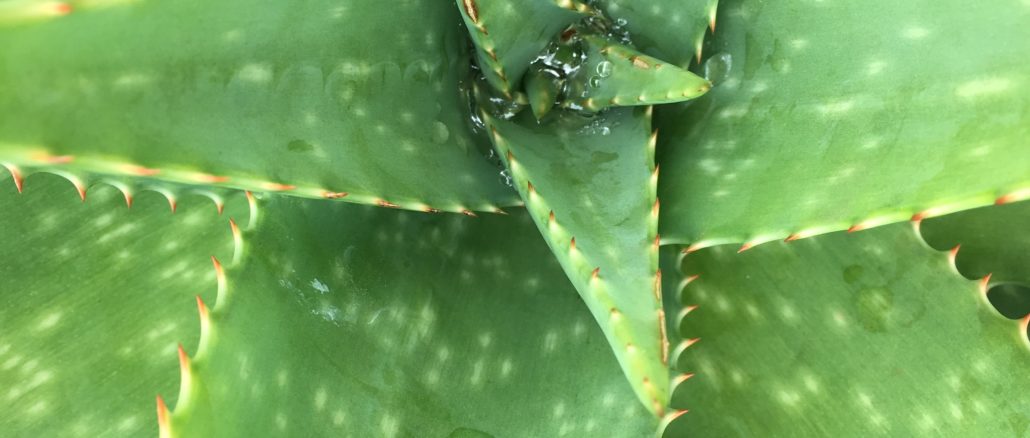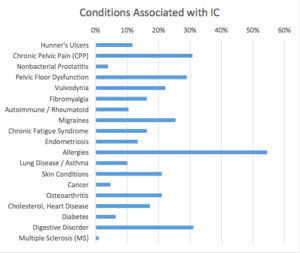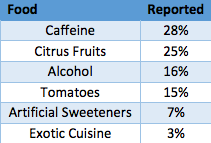
Upwards of 8 million women suffer from interstitial cystitis (IC), a chronic bladder condition that can be extremely painful and debilitating and is typically treated with one prescription medication that not only provides little relief to many women but also causes hair loss.
Now studies are showing that 92% of IC patients experience significant relief of one or more symptoms with whole-leaf, freeze-dried oral aloe vera – with 63-68% reporting substantial improvement in pelvic pain, urethral burning, and urgency and frequency of urination.

A survey was sent to approximately 20,000 individuals who have taken Aloe Vera, primarily for interstitial cystitis (IC). A total of 660 responses were returned. Of these responses, 614 (93.0%) indicated they had been diagnosed with IC, 19 (2.9%) did not have IC, and 27 did not respond to the question. The following analysis was conducted only with the 614 responses who actively identified they had interstitial cystitis. These were all patients who subscribed to the DesertHarvest mailing list.
Gender Distribution
Of the patients who responded to the survey, 93% were female and 7% were male. This may reflect the higher likelihood of women to be diagnosed with interstitial cystitis – rather than the oft-confused chronic non-bacterial prostatitis that men are diagnosed with – but is not supported by population based studies, which are the gold standard in epidemiology studies and which suggest the ratio of female to male cases of IC is closer to 1.5:1, rather than the 5:1 that had been traditionally reported.
Associated Conditions
It is well-established that patients with interstitial cystitis are at higher risk for other conditions as well. Among other associations that have been reported in the literature, patients with IC seem to be at higher risk for allergies, fibromyalgia, migraines, and heart disease. The whether there is a casual connection or an underlying cause remains unclear, but the data collected in this survey supports the literature showing a significant connection between IC and chronic pelvic pain, IBS, fibromyalgia, migraines, allergies, and asthma.3 0% 10% 20% 30% 40% 50% 60% Hunner’s Ulcers Chronic Pelvic Pain (CPP) Nonbacterial Prostatitis Pelvic Floor Dysfunction Vulvodynia Fibromyalgia Autoimmune / Rheumatoid Migraines Chronic Fatigue Syndrome Endometriosis Allergies Lung Disease / Asthma Skin Conditions Cancer Osteoarthritis Cholesterol, Heart Disease Diabetes Digestive Disorder Multiple Sclerosis (MS) Conditions Associated with IC.
Age of Onset
The age of symptom onset is another area where the literature is conflicting for patients with IC. Limited research has suggested onset is most likely in middle age, 5 but more recent population-based studies have suggested that symptoms may be more likely to appear in the 20s or 30s. 1 A study among college-aged women indicated that as many as 10% of college-aged women may experience IC symptoms. 8 This survey demonstrated a wide range for the age of onset. Some patients reported symptoms – or, more likely, were told they experienced symptoms – as early as ages 2-5. The oldest reported onset was 75 years of age. Both the average and median age of onset were found to be 40 years old in this survey.
Trigger Foods
In previous studies and surveys, 80-95% of patients with IC have indicated they have food sensitivities that make symptoms worse. This survey confirmed those results, with 92% of respondents reporting at least some level of food sensitivity. While nearly all patients reported several different sensitivities, this survey also examined which trigger food was most responsible for additional symptoms. Prior research suggesting caffeine, citrus fruits and juices, alcohol, tomatoes, and artificial sweeteners are the most common culprits was confirmed.

Clinical Benefit of Concentrated, Oral Aloe Vera on IC Symptoms
Interstitial cystitis (IC) is a bladder pain condition that affects more than 12 million people in the United States with bladder pain, pelvic pain, and increased urgency and frequency of urination. According to the American Urological Association, no single treatment is effective for the majority of patients. No new treatments have been approved for the condition in the previous two decades. Currently, most patients use off-label drugs for pain relief that have significant side effects and don’t address the underlying cause of the condition. Concentrated aloe vera has been used by thousands of patients to reduce the symptoms of interstitial cystitis. Though the mechanism of action has not been proven, it is hypothesized that the ability of aloe vera to increase the body’s production of glycosaminoglycan (GAG) molecules – which has been demonstrated in the healing of wounds – may also increase GAG synthesis in the bladder lining, where the GAG layer plays an important role in shielding the tissue of the bladder from irritants in the urine. Orally administered aloe vera has been demonstrated in preclinical studies to increase the body’s synthesis of GAG molecules by 43%. It has also shown the ability to increase both types of GAG molecules – both sulfated and non-sulfated molecules – which form the bladder lining’s protective layer. In a pilot randomized, double-blind clinical trial, oral treatment with Aloe Vera was able to reduce IC symptoms in nearly 90% of patients over a three-month treatment course. These results were confirmed in a survey of more than 400 IC patients. After three months of treatment, 75% of patients surveyed noted relief from at least one IC symptom, while nearly half reported significant relief from the majority of their symptoms.
Experiencing “Significant Relief”
In this survey, 92% of patients reported that they experienced “significant relief” of at least some of their symptoms when taking Desert Harvest Super-Strength Aloe Vera capsules. Three common IC symptoms were examined in more detail. Between 63% and 68% of respondents reported either moderate or significant improvement in urgency/frequency, pelvic pain, and urethral burning. Only 12- 13% reported no improvement in each category.
Reducing Other Medication
The survey also queried respondents to learn whether they had been able to reduce other medications – either prescription or over-the-counter – as a result of taking concentrated aloe vera. In this survey, 67.4% of respondents said they had been able to reduce other medications because of the improvement they had seen with oral aloe vera.
Read the full report here.
SheSociety is a site for the women of Australia to share our stories, our experiences, shared learnings and opportunities to connect.

Leave a Reply